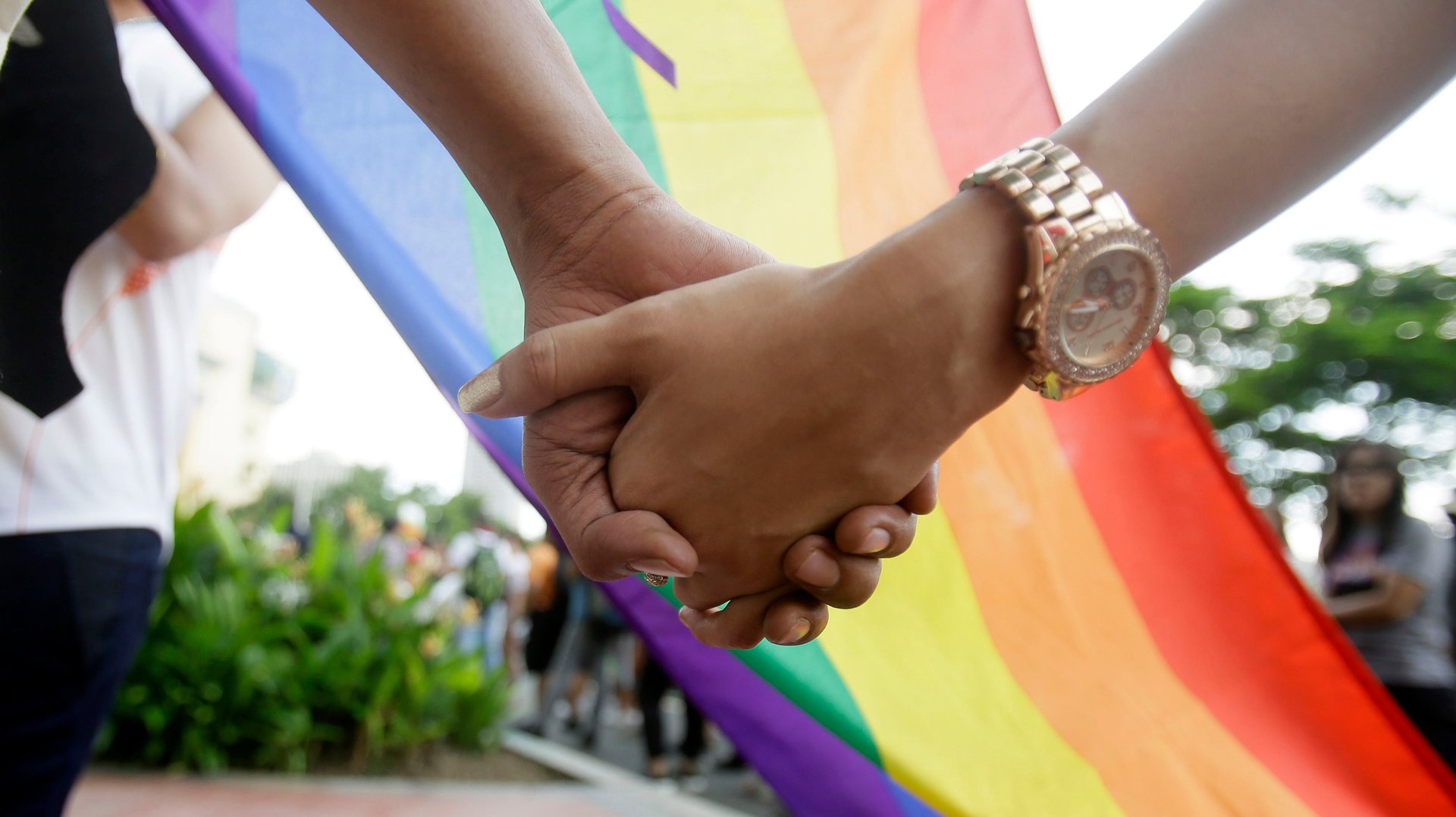Science is debunking the lie that kids of same-sex parents are psychologically worse-off
A new study out of Italy shows children raised by same-sex couples are as psychologically well-adjusted—if not slightly more—than children raised by heterosexual couples.


A new study out of Italy shows children raised by same-sex couples are as psychologically well-adjusted—if not slightly more—than children raised by heterosexual couples.
It adds to the growing body of research disproving the notion that same-sex parenting is somehow inferior. It also comes as Italy grapples with the matter of same-sex marriage. The issue has become something of a political sore spot for the European country, which for a long time was one of the most prominent Western nations refusing to legalize even civil unions for gays and lesbians. The Italian parliament in May 2016 passed a law approving civil unions, but marriage equality remains elusive, in part because of the political clout of the Roman Catholic church, which has opposed such measures.
In December 2017, the EU’s Strasbourg-based European Court of Human Rights condemned the Italian government for its position on same-sex marriage, resulting in a nominal fee and negative publicity for the country. In its decision, the court said that in rejecting marriage equality, Italy deprives same-sex couples of certain legal protections that, in turn, infringe upon their rights to have families.
These are all reasons why the recent study, published in the Journal of Developmental & Behavioral Pediatrics, is so powerful. For the study, researchers at Sapienza University in Rome collected data from 390 parents and their children using password-protected online surveys and tests. The parents were categorized as heterosexual, gay, or lesbian.
The subjects answered questions about their age, sexual orientation, socioeconomic status, geographic residence, and highest level of education received. They also were measured on their overall confidence as a parent and partner. In addition, self-reported tests were administered to parents to try an assess how well their families functioned (including overall family cohesion), and a separate questionnaire for children was administered to assess psychological adjustment.
The researchers found that families with same-sex parents reported about the same results as those with heterosexual parent. Families with gay parents reported the highest level of family cohesion. The study noted that similar familial health doesn’t mean children of same-sex parents enter the world on a level playing field.
“Previous research has indicated that children of same-sex parents may face not only direct and explicit teasing or bullying but also episodes of “microaggression”—microinvalidations, microinsults, and microassaults—on the basis of their family composition,” the scientists note in the study.
There are at least two oft-cited studies showing children of same-sex parents fare worse than children raised heterosexual homes. Those studies found that kids with gay and lesbian parents had higher rates of emotional problems and attention deficit disorders. However, both studies have been questioned because of methodological errors. For instance, in one study the researchers misclassified the number of respondents raised in same-sex homes. In addition, the way they measured family stability was suspect: home ownership was conflated with stability, but really, it’s more of an indicator of socioeconomic status than it is fn the emotional health of a family.
For the most part, though, the bulk of the scientific studies on this topic have shown that the sexual orientation of parents makes no difference in their children’s wellbeing. The researchers in this most recent study did acknowledge that self-reported answers to questionnaires increases the likelihood that people’s responses might be colored by what they felt would be the most socially desirable answer. For that reason, there is a need for more research, they say. Still, they contend that their work carries heft, and should be taken into consideration by politicians.
“Our findings should warn policy makers against making assumptions on the basis of sexual orientation that certain people are more suited than others to be parents or that some people should be restricted from accessing fertility treatments, as is currently the case in Italy,” the study says.